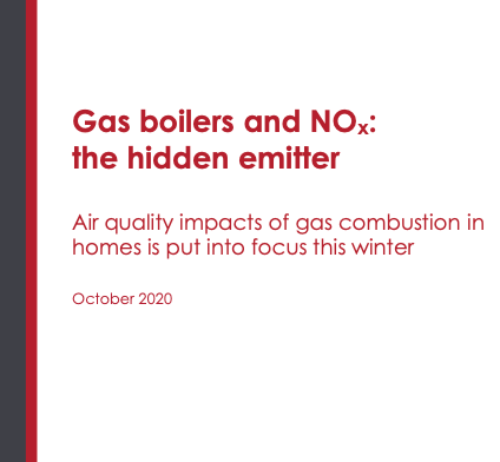Gas boilers and NOx: the hidden emitter
New analysis shows that an increase in boiler use this winter will have implications for urban air quality
Last updated:
Air pollution, specifically nitrogen oxides (NOx) emission from gas boilers, could spike over the course of a winter spent working from home, potentially compromising the UK’s ability to meet legally binding air quality targets, a new report finds.
Gas combustion in buildings, from boilers and cookers, is a major source of local pollution, accounting for approximately a fifth (21%) of total NOx emissions across Greater London. Modelling predicts that boiler use will rise by 56% this winter due to the coronavirus pandemic changing work patterns.
New analysis from the Energy and Climate Intelligence Unit (ECIU) shows that this increase in energy use has implications for urban air quality, driving up NOx emissions by approximately 12% in towns and cities – enough to offset the last two years’ worth of progress on reducing traffic emissions.
The report does not attempt to model traffic emissions over the coming winter and notes that lighter traffic during lockdown may mean a temporary reduction in the overall NOx burden.
Nevertheless, as highlighted in the report, the increase in pollution from gas boilers provides a graphic illustration of their forgotten role in contributing to air pollution. Furthermore, urban dwellers could potentially experience high pollution levels from both home heating and traffic in the near future, if many Britons continue to work from home but those who travel to their workplaces do so by car rather than public transport.
Download the full report here: Gas boilers and NOx: the hidden emitter
